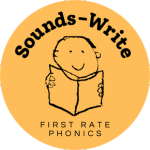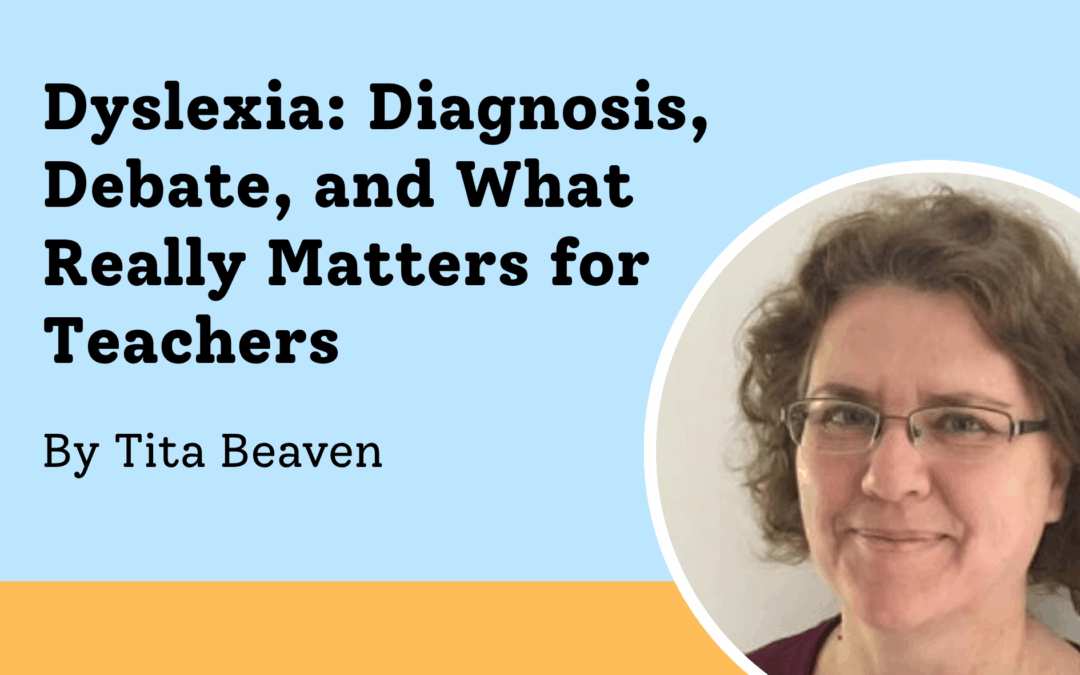This blog post was inspired by Professor Joe Elliott’s keynote: “Rethinking Dyslexia: From Diagnostic Labels to Evidence-Based Reading Support” at the Sounds-Write Symposium 2025.
His thought-provoking presentation challenged many of the assumptions we often make about dyslexia—particularly the usefulness and impact of diagnostic labels.
As educators, it’s essential we reflect on how we use terms like dyslexia, and more importantly, how we respond to children struggling with reading. What follows is a teacher-focused reflection on the role of diagnosis, the risks and benefits of labels, and how we can move toward a more effective, inclusive approach to literacy.
‘Is it dyslexia?’
It’s a question many teachers have asked—sometimes out loud in a pupil progress meeting, sometimes silently as we watch a child who just can’t seem to get reading. The idea of dyslexia offers an explanation, a potential answer, and sometimes a gateway to support. But how helpful is a diagnosis? And what really matters for classroom practice?
Let’s unpack the pros and cons—and then focus on what we, as teachers, can do.
✅ The Pros of a dyslexia diagnosis
A dyslexia diagnosis can bring very real benefits for children and families:
- Access to resources and accommodations, such as extra time in exams or specific reading interventions.
- Reassurance and legitimacy—a diagnosis signals that their struggles aren’t due to laziness or low ability.
- Recognition in systems where support often hinges on labels.
In many cases, it helps families feel heard. And for some learners, it can provide a sense of identity, explanation, and relief.
❌ The challenges and limitations
But as Professor Joe Elliott and others have highlighted, the term dyslexia is complex and inconsistently used. There are concerns that:
- The label lacks clear scientific boundaries—there’s no one test or brain scan that definitively identifies it.
- Access is inequitable—children from more advantaged families are more likely to get diagnosed, often via private assessments.
- It can over-medicalise what is often a result of poor reading instruction or lack of early support.
- It risks being seen as lifelong and unchangeable, which may lower expectations or effort in some contexts.
Put simply, we risk focusing on a label instead of looking closely at the actual difficulties and how we address them.
🔍 What Should Teachers Focus On?
Whether or not a child has a diagnosis, the instructional response should be the same:
- Assess where the gaps are: Is it phonemic awareness? Decoding? Working memory?
- Provide structured, explicit instruction, especially in phonics and vocabulary.
- Monitor progress closely, and don’t be afraid to adapt the approach.
- Support the learner emotionally, helping them feel safe, capable, and motivated.
Labels don’t teach children. Teaching teaches children.
🧠 Moving forward: beyond labels, towards literacy for all
The real danger in focusing too much on diagnoses is that we miss the bigger picture: every child benefits from high-quality, evidence-based reading instruction, not just those with a label.
Let’s shift the question from “Does this child have dyslexia?” to:
“What specific skills is this child struggling with, and how can I support them with targeted, proven instruction?”
🛠️ Takeaway for Teachers
- Use the term dyslexia if it helps you communicate and access support—but don’t rely on it to dictate teaching.
- Invest in understanding the Science of Reading—especially speech-to-print phonics, fluency, and comprehension strategies.
- Remember: early intervention is more powerful than any diagnosis.
If you’re curious about Joe Elliott’s views, or you’d like practical tools for literacy support without relying on labels, check out the Sounds-Write Symposium: Interventions that work.
Because ultimately, what matters most isn’t the diagnosis—it’s what we do next.
Note: Writing this post was its own learning journey—full of questions and lightbulb moments. I had help from TeachSmart, a friendly pedagogy expert powered by AI. It provides advice on good ways to teach and learn, and is based on Michael Sharples fabulous book, Practical Pedagogy: 40 New Ways to Teach and Learn.
About the Sounds-Write Symposium
This symposium is a valuable professional development opportunity for anyone supporting children in their reading journey—whether you’re a teacher, speech pathologist, school leader, literacy specialist, interventionist or home educator.
With a focus on practical, evidence-based phonics interventions, the event brings together over 30 literacy experts to share research, strategies and real-world insights.
You’ll explore effective approaches used across clinical, school and home settings, and gain actionable knowledge to support struggling readers in your own context.

